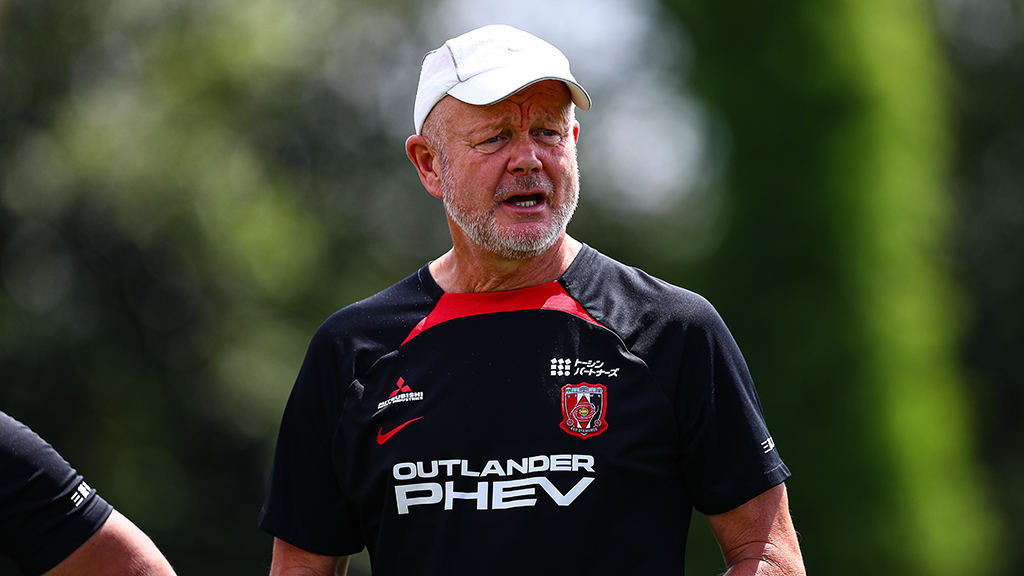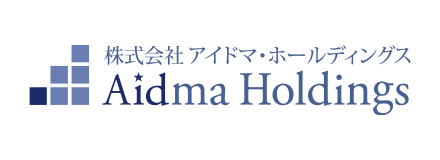NEWS
「夏休み最後の試合、勝ち点3を届けたい」ペア マティアス ヘグモ監督(定例会見 8/23)
23日、ペア マティアス ヘグモ監督の記者会見がオンラインで行われ、8月24日(土)に埼玉スタジアムで行われる明治安田J1リーグ 第28節 川崎フロンターレ戦【MATCH PARTNER 三菱重工】に向けて意気込みを語った。
「みなさん、こんにちは。今週はほぼ全員の選手とトレーニングすることができました。フィジカル的にまだ上げていかなければいけない選手はいます。私の選手たちへの要求は、いい仕事を1回、2回ではなく試合を通じてやり続けるというものです。それを念頭にスタメンとベンチのメンバー選びもしています。昨日は練習を中止してオフにしました。火曜日と水曜日にかなり高い負荷を掛けたトレーニングを行ったことが理由です。高強度のトレーニングをかなり暑い中で行いました。暑い中でトレーニングを行いますと、プラス20パーセントの負荷が掛かりますので、試合に向けての体力温存という意味で昨日はオフにしました。そして次節は子どもたちの夏休み最後の試合となりますので、スタジアムに来て楽しんでもらいたいです。そこでいい内容の試合および勝ち点3をお届けできればと思います」
(前節の鹿島アントラーズ戦はそれまでの数試合とは違って選手たちの気合が入っているように感じたが、マティアス監督は何か変化を感じたか?)
「先ほど申し上げた、1回、2回、もしくは3回だけ仕事をするのではなく、試合を通じてそれを行い続けるというのは選手たちにメンタル的、フィジカル的に要求していることです。また、怪我から戻ってきている選手のコンディションが上がってきているということもあります。そのように怪我人が復帰することによって、チーム内の競争が激しくなっています。非常にいい姿勢で闘ってくれたと思います。しかしそれは毎試合見せないといけない姿勢ですし、試合の中でも一瞬一瞬途切れさせないようにしなければいけません」
(前回の会見で、直近のアウェイ3試合ではPKでの1失点しかしてないという話もあったが、ここ最近、守備で安定感を見せている一番の要因は?)
「ここ直近の7試合を見ますと、湘南ベルマーレ戦では2失点しました。(北海道)コンサドーレ(札幌)戦では前半終了間際と後半の立ち上がりで4失点しました。それ以外の5試合ではPKからの1失点のみです。戦術面から見ますと、名古屋戦から4-4-2のゾーンディフェンスを強く押し出しました。そしてスモールグループ、もしくはチーム全体でディテールを詰める練習を日々のトレーニングの中で行っています。そして確実に良くなってきていると思います。そしてトモ(大久保智明)やタカ(関根貴大)のような昨年から攻守にわたってウイングとして活躍している選手たちが戻ってきていることも一つの理由だと思います。ですので、良くなってきている理由は一つだけではなく、チームとして良くなっている部分もありますし、個別で見ても選手として良くなっている部分もあると思います」
(鹿島戦でも4-4-2のブロックで、ミドルゾーンから少し低い位置で待ち構えるときは安定感が良くなってきたと思うが、おそらく本当はシーズンの前半でもあったように、全体がもっと高い位置で攻撃が終わった瞬間にボールを奪い返す瞬間を復活させることがいいバランスだと思う。順番はあると思うが、そういった点でのチームのこれからの進歩についてどう考えているか?)
「その通りです。我々は試合の中でもできるだけ長い時間ハイプレスを掛けたいと思っています。特にボールを失った直後です。あとは相手のゴールキック、低い位置でのスローインをはめていくハイプレスも掛けたいと思っています。これはフィジカル的にも戦術的にも要求の高いものですので、ある程度それを実行するためには時間も必要になってくると思います。これは言い訳にはしたくありませんが、選手が移籍したり怪我をしたりして、かなりメンバーを入れ替えながら戦ってきました。そういったところから少し安定性を欠く部分はあったと思います。しかし、ゾーンの原理をしっかり把握して行えば、あらゆる高さでプレスを掛けることが可能だと思います。おっしゃった通り、たまにミドルブロックやローブロックを組んだりしたところから出ていくことを現在は行っていますが、前進するために一歩下がるという作業を行っています」
(ウイングの人選だが、大久保選手や関根選手のいいところは相手ボールのときに必要なところまで戻ってくることにあるとは思うが、一方でマイボールに破壊力がある選手もたくさんいると思う。大久保選手や関根選手にもっと攻撃的ないい働きができるように働き掛けていく部分と、攻撃に良さがある選手にもっとしっかり守らせる部分があると思うが、その辺りのバランスはどの段階にあると考えているか?)
「その通りです。大事な分析だと思います。攻撃的な選手もしっかり守備ができなければいけないですし、国際レベルのサッカーを見ていると、選手は2ウェイと言えると思います。攻撃も守備もできないといけません。レッズでウイングとして90分プレーしたいのであれば、攻守両方ともできなければいけないと思います。タカは怪我をするまで非常にいいコンディションだったと思います。鹿島戦でのランニングからのシュートの場面は彼の潜在的な力を見ることができたと思います。トモも怪我をするまでに2点取っていましたので、彼も点を取るポテンシャルは秘めていると思います。トモには非常にいい印象を受けています。彼はインサイドハーフ、トップ下、ウイングとして戦術的にも技術的にも優れていると思います。相手のバランスを崩しながらプレーできる選手です。非常に賢い選手だと思います。岩尾 憲や(伊藤)敦樹、酒井宏樹、(アレクサンダー)ショルツなど、ずっと出ていた選手がいなくなった中で、トモやタカがチームの新たなルーティンを作っていくべきだと思います」
(鹿島戦は非常にいい試合だったが、結果に結びつけることができなかった。どういったところをもっと詰めていかなければいけないのか?課題として残ったことは?)
「前半のタカのチャンス。(渡邊)凌磨の3つのチャンス。前半のラストチャンスはファーストタッチが良ければゴールの確率は高まっていたと思います。鹿島戦のようなダービーで5つ、6つのチャンスをつくることができれば非常にいいと言うことができると思いますが、そのチャンスで最後に決めるクオリティーが求められます。そして(大畑)歩夢、ヒロ(石原広教)がより攻撃的に前線に参加しながら、ペナルティーエリア内の枚数を増やしてくれたことは非常に良かったと思います。潜在的な可能性を感じることができました」
(川崎もボールをポゼションしてくるチームだと思うが、マティアス監督はどう感じているか?)
「非常に強いポゼッションチームだと思います。ボールの扱いがとてもうまいです。クロスから点を取っているチームでもあります。ただ、相手に与えるスペースもありますので、それを利用しながら点を取ることが可能だと思います。前回対戦したアウェイゲームでは、前半はうまくスペースを使いながら攻撃を仕掛けることができました。逆に後半は相手にスペースを与えていましたので、攻守にわたってスペースは意識しなければいけないと思います。そしてこのような試合ではチームとしての構造はもちろん大事ですが、その中での1対1の局面も非常に大事になってくると思っています。攻撃の1対1で勝てば相手のバランスを崩すことができますし、守備の1対1で負ければ相手にアドバンテージを与えてしまうことになります」
(昨日オフだったのは川崎戦に向けて超回復を狙ったのか?)
「超回復およびエネルギーを貯めるということです。今日の練習では非常にシャープな姿が見られましたので、オフからのいい反応が見られました。そして日曜日には明日の試合に出ない選手のために大学とのトレーニングマッチを組んでいます。このようにメンバー全員の負荷を考慮してあります」
(指導者にとってオフを与えることもいい指導者、改善すべき指導者に分かれるものなのか?休息の与え方についてどんな考え方なのか?)
「集団の状態を見ることも監督の仕事の一部だと思います。個別にももちろん見ていきます。個別でいろいろな状況があります。今週までの流れでかなり暑い日が続いていて、その中で我々は高強度のトレーニングを行ってきました。選手たちと会話しながら、スタッフとも議論しながらフィジカル面、メンタル面、あらゆる側面について話し合ってきました。オフにせずに選手を集めて軽いリカバリーのトレーニングをするのか、もしくは戦術練習のみにするのか、あるいは完全なオフにするのかということを長い時間議論して最終的にそのように決めました」
(今日のトレーニングでいい反応だったということは、選手たちが監督の意図を理解し、トレーニングメニューの一環として休息日を過ごしたと捉えていいのか?)
「総合的に考えますと、休養は非常に重要な要素です。選手たちだけではなく社会全体で同じ問題があると思いますが、現代社会では休もうと思ってもあまりにも多くの情報が入ってきますので、そこを遮断しながらいかに自分を休めるかということも学ばなければいけません」
(Jリーグの夏の移籍期間が終了したが、レッズとしての夏の補強についての評価は?)
「敦樹の移籍などがありましたが、全体的にはあまり驚きはありませんでした。ただ、昨シーズンのレギュラー11人のうち7人が移籍しました。以前もお伝えした通り、新たな選手が自分を見せるチャンスでもあります。このタイミングで怪我人が戻ってきていることは一つのいい出来事ですし、新たに獲得した選手たちが試合に絡んでいることも良かったと思います。クラブとしてはいつでも、選手が移籍すればどのように補完するのかということを前もって準備することが大事だと思います」
(マティアス監督は来日して初めて夏の移籍期間を過ごしたと思うが、リーグ全体の夏の移籍の動きをどう見ていたのか?海外クラブに移籍する選手も含めて多かったと思うが、全体の印象はどうか?)
「夏の移籍で日本人選手を獲得することは基本的に難しいという流れは聞いていました。その中でチャレンジしてきました。Jリーグにとっても日本サッカー協会にとっても選手にとってもその代理人にとっても、ヨーロッパに行くことは一つの重要な出来事だと感じています。90年代後半に似たような議論がノルウェーでも行われていました。30人近いノルウェー人選手がプレミアリーグ(イングランド)でプレーしていました。そして2000年代に入っても近年になってもかなり多くの若い選手がスカンジナビアからヨーロッパ中に移籍しています。ただ、移籍しても出場機会がないという選手も多くいます。ですので、選手の移籍に関してはクラブもそうですし、代表チームもしっかりと考えなければいけないと思います。その選手がどういう選手であり、どのようなクラブに行くべきだろうかということは議論すべきところだと思います。たとえば私も代表チームの監督を務めましたが、そのときはできるだけ多くの選手が海外のトップクラブに行く方が望ましく思えました。ノルウェーの協会でスポーツダイレクターも務めましたが、そのときはノルウェー代表とクラブ、両方にいい結果を出してほしいと思いました。それはJリーグでも大事なところだと思います。まずは安定して強いクラブを作ることが必要です。しかしそれを作ると同時に、ベストプレーヤーをたとえばプレミアリーグやブンデスリーガ(ドイツ)でプレーしてもらうことも必要だと思います。その両方を実行するためには、国レベルでの政策が必要だと思います」
【浦和レッズオフィシャルメディア(URD:OM)】
「みなさん、こんにちは。今週はほぼ全員の選手とトレーニングすることができました。フィジカル的にまだ上げていかなければいけない選手はいます。私の選手たちへの要求は、いい仕事を1回、2回ではなく試合を通じてやり続けるというものです。それを念頭にスタメンとベンチのメンバー選びもしています。昨日は練習を中止してオフにしました。火曜日と水曜日にかなり高い負荷を掛けたトレーニングを行ったことが理由です。高強度のトレーニングをかなり暑い中で行いました。暑い中でトレーニングを行いますと、プラス20パーセントの負荷が掛かりますので、試合に向けての体力温存という意味で昨日はオフにしました。そして次節は子どもたちの夏休み最後の試合となりますので、スタジアムに来て楽しんでもらいたいです。そこでいい内容の試合および勝ち点3をお届けできればと思います」
(前節の鹿島アントラーズ戦はそれまでの数試合とは違って選手たちの気合が入っているように感じたが、マティアス監督は何か変化を感じたか?)
「先ほど申し上げた、1回、2回、もしくは3回だけ仕事をするのではなく、試合を通じてそれを行い続けるというのは選手たちにメンタル的、フィジカル的に要求していることです。また、怪我から戻ってきている選手のコンディションが上がってきているということもあります。そのように怪我人が復帰することによって、チーム内の競争が激しくなっています。非常にいい姿勢で闘ってくれたと思います。しかしそれは毎試合見せないといけない姿勢ですし、試合の中でも一瞬一瞬途切れさせないようにしなければいけません」
(前回の会見で、直近のアウェイ3試合ではPKでの1失点しかしてないという話もあったが、ここ最近、守備で安定感を見せている一番の要因は?)
「ここ直近の7試合を見ますと、湘南ベルマーレ戦では2失点しました。(北海道)コンサドーレ(札幌)戦では前半終了間際と後半の立ち上がりで4失点しました。それ以外の5試合ではPKからの1失点のみです。戦術面から見ますと、名古屋戦から4-4-2のゾーンディフェンスを強く押し出しました。そしてスモールグループ、もしくはチーム全体でディテールを詰める練習を日々のトレーニングの中で行っています。そして確実に良くなってきていると思います。そしてトモ(大久保智明)やタカ(関根貴大)のような昨年から攻守にわたってウイングとして活躍している選手たちが戻ってきていることも一つの理由だと思います。ですので、良くなってきている理由は一つだけではなく、チームとして良くなっている部分もありますし、個別で見ても選手として良くなっている部分もあると思います」
(鹿島戦でも4-4-2のブロックで、ミドルゾーンから少し低い位置で待ち構えるときは安定感が良くなってきたと思うが、おそらく本当はシーズンの前半でもあったように、全体がもっと高い位置で攻撃が終わった瞬間にボールを奪い返す瞬間を復活させることがいいバランスだと思う。順番はあると思うが、そういった点でのチームのこれからの進歩についてどう考えているか?)
「その通りです。我々は試合の中でもできるだけ長い時間ハイプレスを掛けたいと思っています。特にボールを失った直後です。あとは相手のゴールキック、低い位置でのスローインをはめていくハイプレスも掛けたいと思っています。これはフィジカル的にも戦術的にも要求の高いものですので、ある程度それを実行するためには時間も必要になってくると思います。これは言い訳にはしたくありませんが、選手が移籍したり怪我をしたりして、かなりメンバーを入れ替えながら戦ってきました。そういったところから少し安定性を欠く部分はあったと思います。しかし、ゾーンの原理をしっかり把握して行えば、あらゆる高さでプレスを掛けることが可能だと思います。おっしゃった通り、たまにミドルブロックやローブロックを組んだりしたところから出ていくことを現在は行っていますが、前進するために一歩下がるという作業を行っています」
(ウイングの人選だが、大久保選手や関根選手のいいところは相手ボールのときに必要なところまで戻ってくることにあるとは思うが、一方でマイボールに破壊力がある選手もたくさんいると思う。大久保選手や関根選手にもっと攻撃的ないい働きができるように働き掛けていく部分と、攻撃に良さがある選手にもっとしっかり守らせる部分があると思うが、その辺りのバランスはどの段階にあると考えているか?)
「その通りです。大事な分析だと思います。攻撃的な選手もしっかり守備ができなければいけないですし、国際レベルのサッカーを見ていると、選手は2ウェイと言えると思います。攻撃も守備もできないといけません。レッズでウイングとして90分プレーしたいのであれば、攻守両方ともできなければいけないと思います。タカは怪我をするまで非常にいいコンディションだったと思います。鹿島戦でのランニングからのシュートの場面は彼の潜在的な力を見ることができたと思います。トモも怪我をするまでに2点取っていましたので、彼も点を取るポテンシャルは秘めていると思います。トモには非常にいい印象を受けています。彼はインサイドハーフ、トップ下、ウイングとして戦術的にも技術的にも優れていると思います。相手のバランスを崩しながらプレーできる選手です。非常に賢い選手だと思います。岩尾 憲や(伊藤)敦樹、酒井宏樹、(アレクサンダー)ショルツなど、ずっと出ていた選手がいなくなった中で、トモやタカがチームの新たなルーティンを作っていくべきだと思います」
(鹿島戦は非常にいい試合だったが、結果に結びつけることができなかった。どういったところをもっと詰めていかなければいけないのか?課題として残ったことは?)
「前半のタカのチャンス。(渡邊)凌磨の3つのチャンス。前半のラストチャンスはファーストタッチが良ければゴールの確率は高まっていたと思います。鹿島戦のようなダービーで5つ、6つのチャンスをつくることができれば非常にいいと言うことができると思いますが、そのチャンスで最後に決めるクオリティーが求められます。そして(大畑)歩夢、ヒロ(石原広教)がより攻撃的に前線に参加しながら、ペナルティーエリア内の枚数を増やしてくれたことは非常に良かったと思います。潜在的な可能性を感じることができました」
(川崎もボールをポゼションしてくるチームだと思うが、マティアス監督はどう感じているか?)
「非常に強いポゼッションチームだと思います。ボールの扱いがとてもうまいです。クロスから点を取っているチームでもあります。ただ、相手に与えるスペースもありますので、それを利用しながら点を取ることが可能だと思います。前回対戦したアウェイゲームでは、前半はうまくスペースを使いながら攻撃を仕掛けることができました。逆に後半は相手にスペースを与えていましたので、攻守にわたってスペースは意識しなければいけないと思います。そしてこのような試合ではチームとしての構造はもちろん大事ですが、その中での1対1の局面も非常に大事になってくると思っています。攻撃の1対1で勝てば相手のバランスを崩すことができますし、守備の1対1で負ければ相手にアドバンテージを与えてしまうことになります」
(昨日オフだったのは川崎戦に向けて超回復を狙ったのか?)
「超回復およびエネルギーを貯めるということです。今日の練習では非常にシャープな姿が見られましたので、オフからのいい反応が見られました。そして日曜日には明日の試合に出ない選手のために大学とのトレーニングマッチを組んでいます。このようにメンバー全員の負荷を考慮してあります」
(指導者にとってオフを与えることもいい指導者、改善すべき指導者に分かれるものなのか?休息の与え方についてどんな考え方なのか?)
「集団の状態を見ることも監督の仕事の一部だと思います。個別にももちろん見ていきます。個別でいろいろな状況があります。今週までの流れでかなり暑い日が続いていて、その中で我々は高強度のトレーニングを行ってきました。選手たちと会話しながら、スタッフとも議論しながらフィジカル面、メンタル面、あらゆる側面について話し合ってきました。オフにせずに選手を集めて軽いリカバリーのトレーニングをするのか、もしくは戦術練習のみにするのか、あるいは完全なオフにするのかということを長い時間議論して最終的にそのように決めました」
(今日のトレーニングでいい反応だったということは、選手たちが監督の意図を理解し、トレーニングメニューの一環として休息日を過ごしたと捉えていいのか?)
「総合的に考えますと、休養は非常に重要な要素です。選手たちだけではなく社会全体で同じ問題があると思いますが、現代社会では休もうと思ってもあまりにも多くの情報が入ってきますので、そこを遮断しながらいかに自分を休めるかということも学ばなければいけません」
(Jリーグの夏の移籍期間が終了したが、レッズとしての夏の補強についての評価は?)
「敦樹の移籍などがありましたが、全体的にはあまり驚きはありませんでした。ただ、昨シーズンのレギュラー11人のうち7人が移籍しました。以前もお伝えした通り、新たな選手が自分を見せるチャンスでもあります。このタイミングで怪我人が戻ってきていることは一つのいい出来事ですし、新たに獲得した選手たちが試合に絡んでいることも良かったと思います。クラブとしてはいつでも、選手が移籍すればどのように補完するのかということを前もって準備することが大事だと思います」
(マティアス監督は来日して初めて夏の移籍期間を過ごしたと思うが、リーグ全体の夏の移籍の動きをどう見ていたのか?海外クラブに移籍する選手も含めて多かったと思うが、全体の印象はどうか?)
「夏の移籍で日本人選手を獲得することは基本的に難しいという流れは聞いていました。その中でチャレンジしてきました。Jリーグにとっても日本サッカー協会にとっても選手にとってもその代理人にとっても、ヨーロッパに行くことは一つの重要な出来事だと感じています。90年代後半に似たような議論がノルウェーでも行われていました。30人近いノルウェー人選手がプレミアリーグ(イングランド)でプレーしていました。そして2000年代に入っても近年になってもかなり多くの若い選手がスカンジナビアからヨーロッパ中に移籍しています。ただ、移籍しても出場機会がないという選手も多くいます。ですので、選手の移籍に関してはクラブもそうですし、代表チームもしっかりと考えなければいけないと思います。その選手がどういう選手であり、どのようなクラブに行くべきだろうかということは議論すべきところだと思います。たとえば私も代表チームの監督を務めましたが、そのときはできるだけ多くの選手が海外のトップクラブに行く方が望ましく思えました。ノルウェーの協会でスポーツダイレクターも務めましたが、そのときはノルウェー代表とクラブ、両方にいい結果を出してほしいと思いました。それはJリーグでも大事なところだと思います。まずは安定して強いクラブを作ることが必要です。しかしそれを作ると同時に、ベストプレーヤーをたとえばプレミアリーグやブンデスリーガ(ドイツ)でプレーしてもらうことも必要だと思います。その両方を実行するためには、国レベルでの政策が必要だと思います」
【浦和レッズオフィシャルメディア(URD:OM)】





















